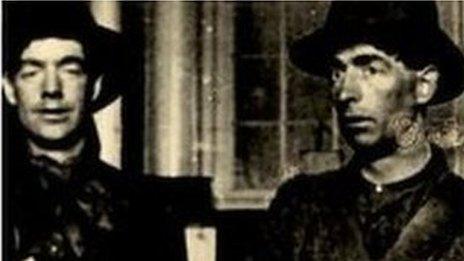Easter Rising centenary: Water charges protesters disrupt launch
- Published
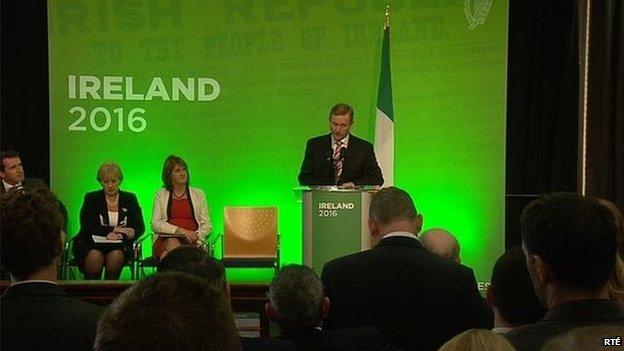
Irish Prime Minister (Taoiseach) Enda Kenny was heckled as he outlined his government's programme of 1916 Easter Rising centenary commemorations
Water charges protesters have disrupted an Irish government event staged to unveil plans for state commemorations of the 1916 Easter Rising centenary.
Protesters gathered outside the event at Dublin's General Post Office, focal point of the original 1916 rebellion.
They banged loudly on the doors and windows, drowning out politicians who were in the GPO outlining the schedule.
A man inside the building heckled Prime Minister Enda Kenny as he delivered his speech, but was removed by security.
'Momentous'
Mr Kenny and other senior politicians continued their presentation, despite the protests.
The prime minister (taoiseach) told his audience: "Easter Week 1916 was one of those seminal weeks when the fault lines of history shifted and reshaped the political, social, cultural, and economic landscape of these islands.
"More importantly the events of that momentous week and its aftermath, and the inspiring proclamation which underpins it, has shaped our view of ourselves and our nation, for the past century."
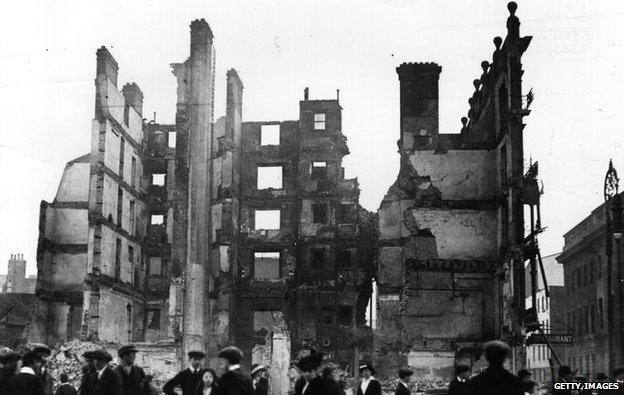
Much of Dublin city centre was badly damaged by shelling and fire during the 1916 Easter Rising, including Sackville Street (later renamed O'Connell Street)
Mr Kenny's government unveiled a programme of commemorations planned for March 2016, including a military ceremony that will be led by descendents of the leaders of the 1916 Easter Rising.
The relatives will also be invited to a state reception to mark the centenary of the rebellion, which is widely viewed as the catalyst for the founding of an independent Irish state.
'Shame on you'
However, as Mr Kenny started his speech, the heckler asked him what "sacrifice" he had made, before shouting "shame on you" at the prime minister.
Deputy Prime Minister (Tánaiste) Joan Burton also struggled to be heard above the protesters outside the building.
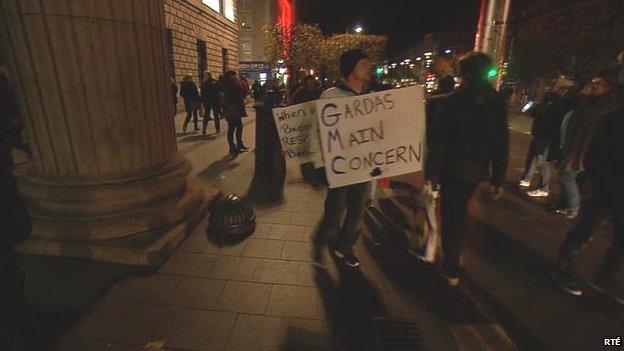
Protesters staged a noisy demonstration outside the GPO - a focal point of the original 1916 rebellion
The Irish coalition government has faced widespread, unprecedented public protests over the recent introduction of charges for domestic water supply.
The charges are being imposed in every home as a condition of the international financial bailout that the state had to seek in 2010.
'Permanent reminders'
The Republic of Ireland has officially exited the bailout programme, but the rescue package will have consequences for the state's finances for years to come.
For its centenary commemorations, the Irish government has allocated 22m euros (£17.4) for seven "flagship capital projects" that will renovate and develop buildings linked to the rebels, as "permanent reminders" of the Easter Rising.
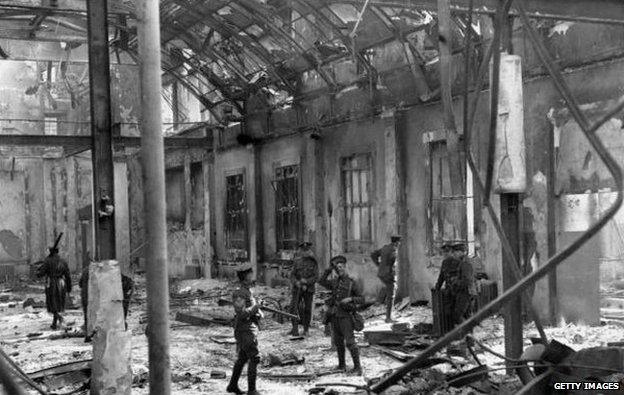
The GPO was left in ruins after the 1916 Easter Rising but was later rebuilt
The seven projects include the development of an interpretative centre at the GPO and a new visitors centre at a cottage used by Easter Rising leader Pádraig Pearse.
The Easter Rising began on Easter Monday, 24 April 1916, when armed groups from the Irish Volunteers and Irish Citizen Army seized and occupied several significant buildings in Dublin.
Partition
The brief, violent insurrection was defeated within days by British forces.
However, the decision to execute 15 rebel leaders who survived the fighting produced a wave of public sympathy for their cause.
Within three years of their deaths, the Irish War of Independence broke out.
The war ended with the partition of Ireland in 1921 and the establishment of an Irish free state.
- Published1 November 2014
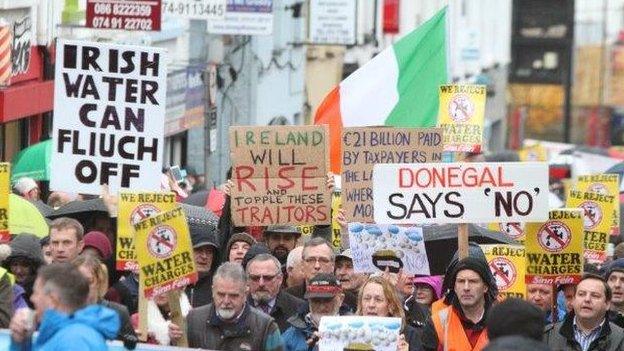
- Published17 January 2014
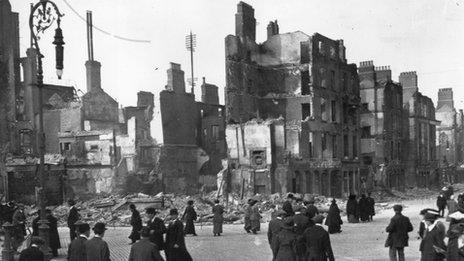
- Published6 November 2012

- Published8 August 2012
